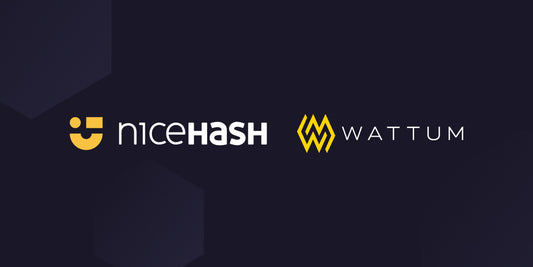While Bitcoin has been subject to considerable criticism due to its high energy consumption, how does it compare to the environmental impact of the longstanding, historically popular asset of gold? Gold is often compared to Bitcoin (which is sometimes referred to as “digital gold”) as both are used as a store of value when diversifying investments. While Bitcoin mining faces backlash regarding environmental impact more often than gold, the former actually uses less energy than gold mining. Not to mention, Bitcoin is a relatively new industry which shows plenty of promise for innovation when it comes to sourcing energy, especially when it promises higher margins.
Comparing Energy Usage
Judging by sheer energy usage, gold mining consumes 131.9 TWh of energy yearly, whereas Bitcoin consumes 127.48 TWh. Tech investment firm Cota Capital has conducted an analysis suggesting that mining gold is 50 times more expensive than both mining Bitcoin and operating the Bitcoin network. Gold is rarely discussed in mainstream media from an environmental standpoint, so this may come as a surprise to some. Main energy usage for gold mining comes from grid power and energy generated from direct fossil fuels. The production of enough gold for a simple wedding band generates 20 tons of waste alone; in order to dig up gold, a significant amount of dirt and rocks get misplaced. Compared to this total mass of displaced earth, the amount of gold actually recovered is miniscule. Mining gold means to engage in other environmentally unsustainable practices in its value chain that aren’t included when mining Bitcoin. This includes landscape destruction, the destruction of flora and fauna, acid mine drainage, transportation pollution, and mercury production.
In addition to mercury, gold mine wastes (or tailings) contain an abundance of dangerous chemicals including lead, arsenic, and cyanide. Every year, over 180 million tonnes of this hazardous waste are dumped into rivers, oceans, and lakes by gold mining companies, adding up to more than 1.5 times the amount of waste than US cities send to landfills each year, and poisoning water supplies. It has been recommended that strong action be taken by regulators to hold gold mining companies accountable. Further, gold mining activities can cause significant contamination and destruction of natural ecosystems through the generation of heavy metal laden wastes. These wastes can have adverse effects on human health, as well as animal and plant life.
This is heavily contrasted with the approximate 39% of Proof of Work mining that is powered by renewable energy, most of it coming from hydroelectric sources. Clean mining is a huge opportunity for environmental benefit and cost savings that many miners are capitalizing on. This is proven by over 75% of hashers using some form of renewable energy in their power-mix. As clean energy gets cheaper, more miners will continue to switch over to utilizing such energy sources.
Gold is used for more than just as a store of value, but Bitcoin takes this a step further and has been a salvation for people who cannot trust the currency of their home country. Many Bitcoin proponents view the high energy consumption as a fair exchange for the refuge it provides individuals from existing centralized financial systems that don’t operate in their favour. Taking into account the utility Bitcoin provides is important as its applications provide benefits to people around the world who have strong reasons to not use their country’s currency, due to inflation or government mistrust.
Potential for Innovation
Being a relatively new industry, Bitcoin has greater potential to use clean energy given that it is still in the innovation phase. The ability to set up mining farms pretty much anywhere, an increasing demand for clean Bitcoin mining, and a finite number of Bitcoins all make the cryptocurrency miners further incentivized to utilize clean energy. Bitcoin mines can even be built on the side of mountains, where they can consume energy directly from solar panel locations. Comparatively, gold has less opportunity to choose renewable energy since mining locations are based on where the gold is. There is also less control for minority investors in a gold mining company than Bitcoin miners over how they mine.
Bitcoin mining is becoming a driver for clean energy innovation despite the environmental impact in its early stages. Each year, 160,000 TWh of energy is generated worldwide, yet 50,000 TWh is lost to inefficiencies. Bitcoin consumes 127.48 TWh, aka 0.25% of the energy wasted each year. The high energy consumption of Bitcoin needs to be taken with its context, especially once more miners are able to consume energy that would have otherwise gone to waste. As renewable energy becomes cheaper, miners will increasingly switch over to chase the energy that increases their margins most.
Earth, Air and Fire
Currently, the two consistently most cost-effective and scalable energy sources in the world are solar and wind energy. However, they are often not implemented primarily because of their intermittent power supply and grid congestion. Solar and wind power go through daily cycles of booms and busts of energy production which cannot be artificially controlled to match peak and off-peak demands.
Miners flock to the cheapest energy source possible. This opens up a huge opportunity for Bitcoin miners to offer a flexible load option to allow the grids to deploy more renewable energy by addressing intermittency and congestion problems. This works because Bitcoin miners are the few energy users that can be highly flexible in their energy requirements, and offer an easily interruptible load. So when excess energy is produced, instead of going to waste, it can be redirected to miners and generate revenue. Curtailment is the reduction in the output of a generator compared to what it could otherwise produce. In other words, the grid is not paying plant owners ($/kWh) for the energy produced.
Adding miners to the existing generation and storage for renewable energy sources provides strong benefits as there are limits on how much energy can be cost effectively stored without being lost. These benefits include making solar and wind projects more attractive, higher returns for project investors and developers, and a fix for the daily cyclical nature of solar and wind energy.
Further benefits include the eventual drop in cost for solar and wind power once scaled, which will incentivize other companies to also switch over to these renewable energy sources. Large U.S.-based mining operation Pylon Finance speaks to the benefits crypto mining can provide: “Companies often rely on miners to utilize unused electricity – especially during the pandemic.”
It is common for mining firms to take excess energy, helping these power companies achieve 100% utilization of overproduced power. This is common in places such as Canada and the state of Washington, where hydro companies “practically give away electricity due to excess production and low utilization, in addition to not being in a favorable location for retail; miners, however, set up in front of power plants, saving transmission costs.” This provides a win-win situation for companies, however it is often underreported in the media whenever Bitcoin’s energy consumption is addressed.
Become a Clean Energy Miner
Wattum understands the need for clean facilities that balance the need for low cost of energy. With over thirty years of experience, partnering with Wattum’s Buildout Division can ensure you are working with a trusted and experienced firm to develop a clean energy Bitcoin mining farm. By pursuing clean energy in your facility, you aren’t only choosing the most sustainable option in the long run, but also the most cost-effective one.



